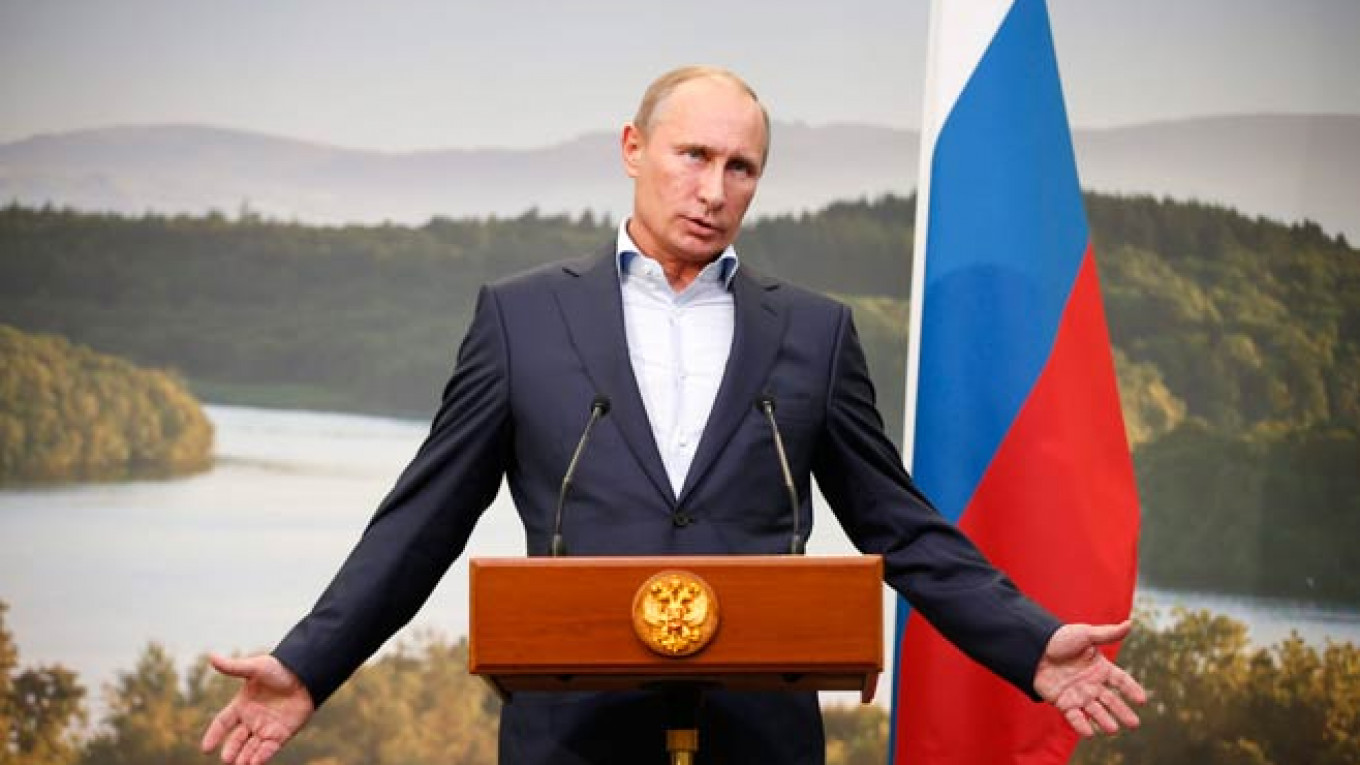During recent U.S. presidential campaigns, Republican candidates made two outlandish statements. Sarah Palin, the 2008 vice presidential candidate, predicted that if Barack Obama were elected, Russia would invade Ukraine. Four years later, Mitt Romney called Russia the U.S.' No. 1 geopolitical foe.
It is a measure of the strangeness of Russia's behavior that both statements are now true. Despite the steady ratcheting up of anti-American rhetoric in Russia, the new confrontation took Washington by surprise. This is not so much because the Kremlin no longer has an expansionist ideology to export, but because Russia, unlike the Soviet Union, is closely integrated into the world economy and is highly vulnerable to international sanctions.
Victories like the annexation of economically depressed Crimea and even "industrial" eastern Ukraine damage Russia's ramshackle economy. Sanctions will ruin it.
Russia's rupture with the West greatly strengthens China's economic and political hand, especially in Central Asia. The fact that China quietly eggs Russia on and is willing to replace the West as a market for Russia's natural resources should serve as a warning. Russia is China's real No. 1 geopolitical foe. Had Beijing thought that Russia would be made stronger by annexing Ukraine, it would have acted differently.
Russia is weak militarily, as well. After World War II, the Soviets had an advantage in conventional forces, leaving the West reliant on its U.S. nuclear arsenal. Now, the U.S, military is vastly superior to Russia's obsolete forces. Given Russia's industrial and technological lag, catching up would be impossible.
In other words, a new cold war will be suicidal for Russia economically, politically and militarily. No one who thought the Kremlin acted rationally could have foreseen this remarkable shift.
In the Soviet era, Washington regarded Russians not as enemies but as victims of a communist regime, much as it did Eastern Europeans. This view was based on the fundamental tenet of democracy — namely, if people were freed from oppression and given access to objective facts, they would independently choose peace, democracy, freedom, decency and human dignity for themselves and their children.
This attitude stemmed from the U.S. experience after World War II, when defeated foes Germany, Italy and Japan transitioned to democracy and became Washington's staunch allies. It was confirmed by the collapse of the Berlin Wall. And even Russia rejected communism after the disintegration of the Soviet Union, initially embracing democratic reforms and rejoining the community of nations.
Not any more. Today's anti-Americanism in Russia is widespread, deeply rooted and visceral, and it thrives even though all Russians have access to objective information on the Internet. All of a sudden, we have been thrown back to 1914, when war is no longer an ideological fight but a contest of nation against nation.
The new cold war is already on. Writer Vladimir Sorokin, whose 2006 dystopian novel "The Day of the Oprichnik" uncannily foresaw today's Russia, said in a 2012 interview: "Sad to say, people are starting to look askance at us Russians. While in the Soviet era they felt compassion, knowing that we came from the land of the camps, now they look at us with disdain. They see that Russia is always full of horrors, a land that forever produces miscreants. It is a change from the 1990s, when the world opened its arms to us and felt great interest in Russia. They welcomed us, hoping we had changed course and chosen a path to normality. They don't expect it any more. It is over. The time is past."
Alexei Bayer, a native Muscovite, lives in New York. His detective novel "Murder at the Dacha" was published by Russian Life Books in 2013.
A Message from The Moscow Times:
Dear readers,
We are facing unprecedented challenges. Russia's Prosecutor General's Office has designated The Moscow Times as an "undesirable" organization, criminalizing our work and putting our staff at risk of prosecution. This follows our earlier unjust labeling as a "foreign agent."
These actions are direct attempts to silence independent journalism in Russia. The authorities claim our work "discredits the decisions of the Russian leadership." We see things differently: we strive to provide accurate, unbiased reporting on Russia.
We, the journalists of The Moscow Times, refuse to be silenced. But to continue our work, we need your help.
Your support, no matter how small, makes a world of difference. If you can, please support us monthly starting from just $2. It's quick to set up, and every contribution makes a significant impact.
By supporting The Moscow Times, you're defending open, independent journalism in the face of repression. Thank you for standing with us.
Remind me later.






